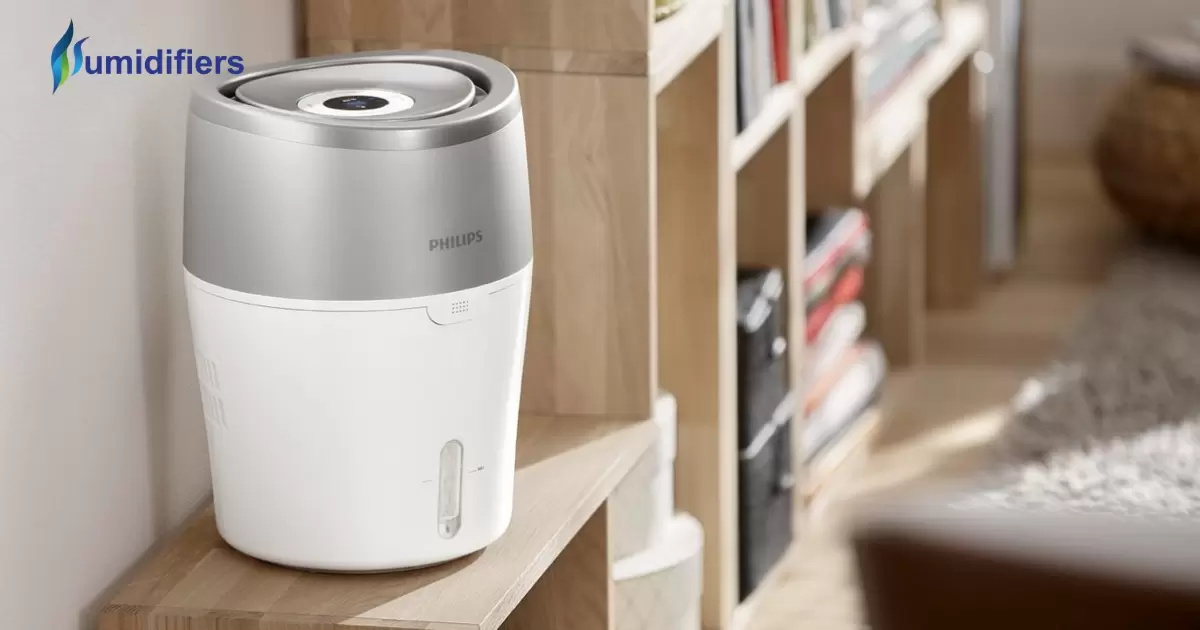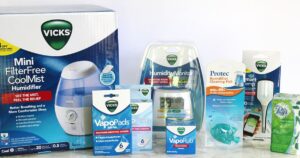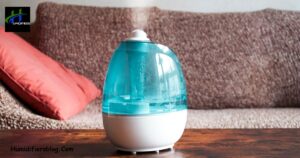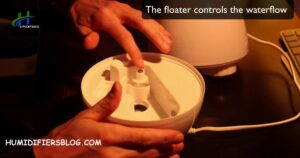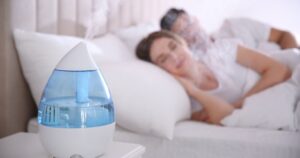Cold water in a humidifier is cool and refreshing, adding moisture to the air. It’s like a cool breeze in your room. On the other hand, hot water in a humidifier creates a warm mist, cozy for chilly days, making the air feel snug and comfortable.
Curious about maintaining the perfect humidity? Wondering, Do you put cold or hot water in a humidifier? Let’s unravel the mystery together. Discover the key to a comfy atmosphere take a step towards ultimate comfort by unlocking the secret to choosing the right water temperature for your humidifier.
Choosing water for your humidifier is simple. Cold water gives a refreshing mist, like a cool breeze. Hot water creates a cozy warmth, perfect for chilly days. Decide based on your vibe, and enjoy the ultimate comfort in your space.
Importance Of Water Temperature
Water temperature matters for your humidifier. Cold water brings a refreshing mist, ideal for a cool feel. Hot water offers cozy warmth, perfect for colder days. The choice is yours, shaping the comfort of your space.
Consider the impact of water temperature. It influences the humidity in your surroundings. It’s the cool freshness of cold water or the snug warmth from hot water, your choice creates the atmosphere you desire. Find the balance for your ultimate comfort.
| Scenario | Cold Water | Hot Water |
| Evaporative Humidifiers | Recommended to prevent damage. | Not suitable, may harm the unit. |
| Warm Mist Humidifiers | May not be effective. | Ideal for efficient moisture release. |
| Manufacturer Guidelines | Follow for longevity. | Comply for optimal performance. |
| Overall Comfort | Appropriate for specific models. | Enhances comfort with warmth. |
Cold Water In Humidifiers Pros And Cons
Cold water in humidifiers has perks. It’s energy-efficient, keeping your electric bill down. The cool mist feels refreshing, especially in warmer seasons. But be cautious, it might not be ideal in colder climates, potentially making rooms too chilly.
Pros
Energy-Efficient: Cold water use translates to lower energy bills.
Refreshing Mist: The cool mist provides a refreshing feel, ideal for warmer seasons.
Simple Usage: Easily accessible and convenient for daily humidifier use.
Suitable for Warm Climates: Well-suited for maintaining a comfortable atmosphere in already warm conditions.
Less Risk of Burns: No risk of accidental burns during water handling.
Cons
Ineffectiveness Against All Bacteria: Cold water may not eliminate all bacteria, potentially allowing for mold growth.
Cooling Effect in Winter: Usage in colder climates may counteract heating efforts, making spaces cooler.
Potential for Mold Growth: Incomplete elimination of bacteria raises the risk of mold development in the humidifier.
Less Effective in Cold Climates: Cold water may not be as efficient in maintaining warmth in colder regions.
Regular Cleaning Required: Regular and thorough cleaning is essential to prevent bacterial and mold issues.
Hot Water In Humidifiers Pros And Cons
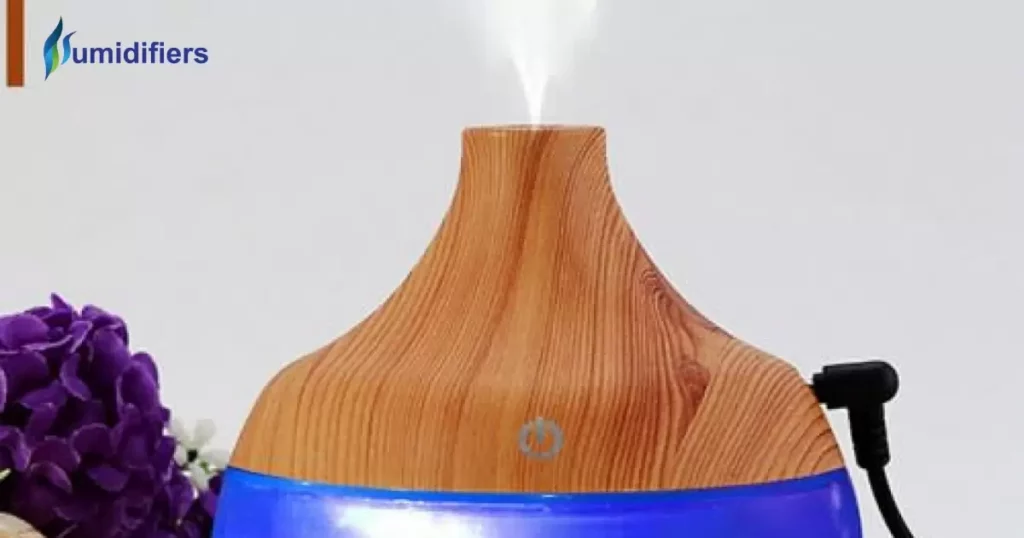
Opting for hot water in humidifiers brings forth a few advantages. The warmth of the mist provides a comforting ambiance, particularly when the weather is cold. This cozy feeling can be especially appreciated during chilly seasons, adding a layer of comfort to your living space. Vicks pads in humidifiers can enhance this experience.
Pros
Cozy Warmth: The warm mist creates a snug atmosphere.
Ideal for Cold Days: Particularly beneficial during chilly weather.
Comfortable Environment: Enhances the overall comfort of your living space.
Cons
Energy Consumption: Hot mist may require more energy.
Potential Safety Risks: There’s a risk of burns or accidents.
Quick Evaporation: Hot mist tends to evaporate rapidly.
Harder to Maintain: Maintenance might be more involved.
Limited Use in Warm Climates: Less effective in already warm environments.
Effects Of Water Temperature On Humidification
Water temperature matters for humidification. Cold water gives a light mist, suitable for a fresh feel in your space. It’s like nature’s touch, cool and invigorating. In contrast, hot water creates a warm mist, providing a snug warmth, especially comforting on colder days. Adjust the temperature to match your comfort needs.
Consider the effects wisely. Cold water is excellent for a quick, refreshing boost. It’s like a splash of energy for your environment. Meanwhile, hot water offers a soothing warmth, akin to a gentle hug from the air. Understand the impact of water temperature and tailor your humidification experience accordingly.
Manufacturer Recommendations
Manufacturers usually provide clear instructions for humidifiers. Check the manual to know the recommended water temperature. Some suggest using cold water for safety and efficiency. Others may advise warm water for a cozy mist.
Always follow the manufacturer’s recommendations. They know their product best. Whether it’s cold or hot water, sticking to their guidance ensures optimal performance. Keep it simple, follow the instructions, and enjoy the benefits of a well-maintained humidifier.
Considerations For Different Humidifier Types
When choosing a humidifier, consider the type. Evaporative ones use a fan, adding moisture efficiently. Ultrasonic ones create a fine mist silently. Steam vaporizers emit warm mist for a cozy feel. Pick the type that suits your comfort needs.
Next, check the size. For a bedroom, a compact humidifier works well. Larger spaces need bigger units. Understand your space and choose accordingly for optimal performance. Now, armed with these considerations, you’re ready to create the perfect atmosphere in your home.
Tips For Using Cold & Hot Water In Humidifiers
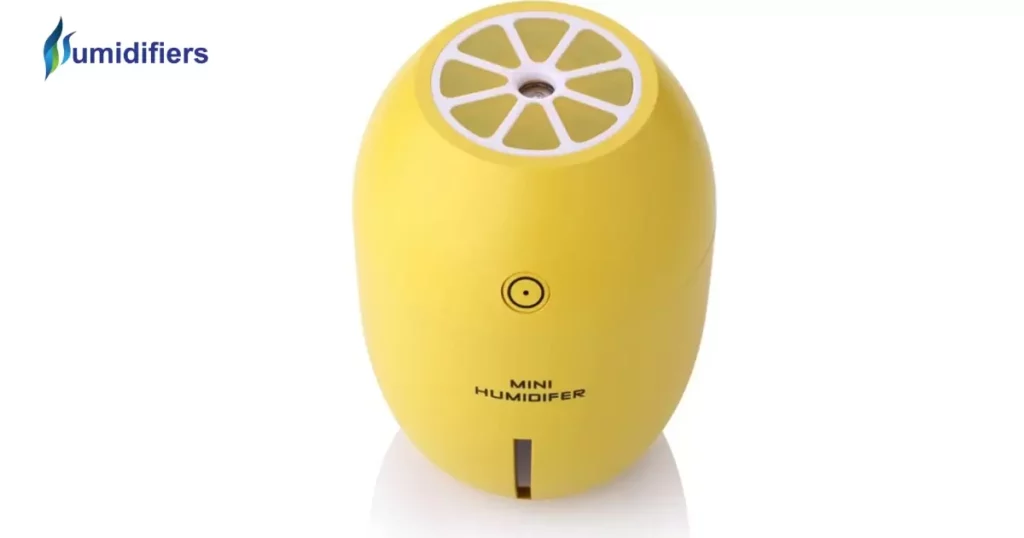
Using Cold Water
When opting for cold water in your humidifier, relish the cool mist resembling a gentle breeze. Ideal for a refreshing ambiance, this choice suits warm days and brings relief to stuffy rooms. Ensure a comfortable atmosphere by keeping it simple with cold water.
- Choose cold water for a refreshing mist.
- Perfect for warm days and stuffy rooms.
- Simple and effective for a comfortable ambiance.
Using Hot Water
Opting for hot water introduces a cozy warmth, creating a snug environment on chilly days. Embrace the comfort of a warm mist that adds a touch of relaxation to your space. Ideal for winter nights, this choice ensures a soothing and inviting atmosphere.
- Select hot water for a cozy warmth.
- Perfect for creating a snug environment.
- Ideal for winter nights and a soothing atmosphere.
Frequently Asked Questions
Can you put ice-cold water in a humidifier?
No, it’s not recommended to use ice-cold water in a humidifier. Cold water alone is suitable for a refreshing mist, avoiding the extremes of very cold temperatures.
Can I put hot water in a humidifier?
Yes, you can put hot water in a humidifier. It creates a warm mist, perfect for adding coziness to your space.
How long can water sit in a humidifier?
Water in a humidifier should not sit for more than 48 hours to prevent bacterial growth and maintain air quality. Regularly empty and refill to ensure freshness.
What should you not put in a humidifier?
Avoid adding essential oils or substances containing oils to a humidifier, as they can damage the machine and pose respiratory risks.
Conclusion
In conclusion, determining whether to use cold or hot water in your humidifier depends on the type of humidifier you have. For evaporative humidifiers, cold water is recommended to avoid potential damage to the unit. On the other hand, warm mist humidifiers operate more effectively with hot water, helping to release soothing moisture into the air.
It’s crucial to follow the manufacturer’s guidelines to ensure optimal performance and longevity of your humidifier. Ultimately, understanding the specific requirements of your device will help you make the right choice between cold or hot water for a more comfortable and effective humidification experience.
